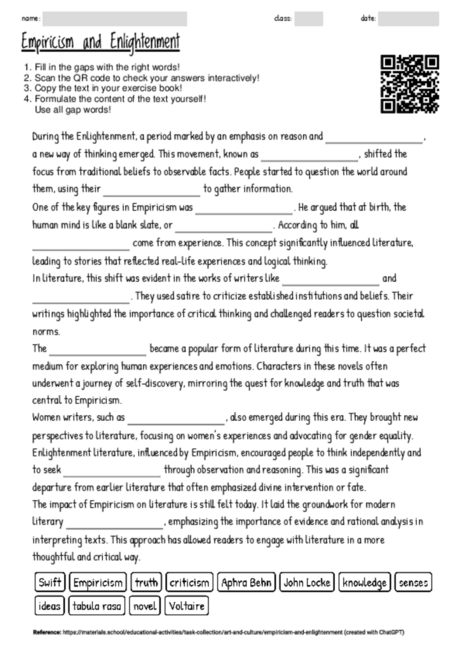Empiricism and Enlightenment
Cloze texts, like the one created on Empiricism in the context of Enlightenment in Literature, are valuable in educational settings for several reasons. Firstly, they encourage students to read attentively, enhancing their comprehension skills. The deliberate omission of key terms requires students to think critically about the text's content to fill in the blanks correctly. This process fosters deeper engagement with the material.
Furthermore, this particular cloze text covers an important historical and literary period, making it a useful tool in teaching about the Enlightenment and its impact on literature. It introduces students to key concepts and figures, such as Empiricism, John Locke, and Aphra Behn, providing a foundation for further study in literature and history.
The text also illustrates the shift in literary focus during the Enlightenment, from divine intervention to human experiences and logical thinking. This helps students understand the evolution of literary themes and genres, including the rise of the novel. Such knowledge is instrumental in developing a comprehensive understanding of literary history.
Additionally, the cloze format can be adapted for various learning levels. For beginners, more keywords can be provided, while for advanced students, fewer clues can be offered, making it a versatile tool. This adaptability ensures that the exercise remains challenging and engaging for students with different skill levels.
Lastly, the text's emphasis on critical thinking and evidence-based analysis mirrors the principles of Empiricism, thus providing a practical demonstration of the era's intellectual ethos. This not only aids in the retention of historical facts but also promotes the development of analytical skills, which are crucial for academic success in various disciplines.

